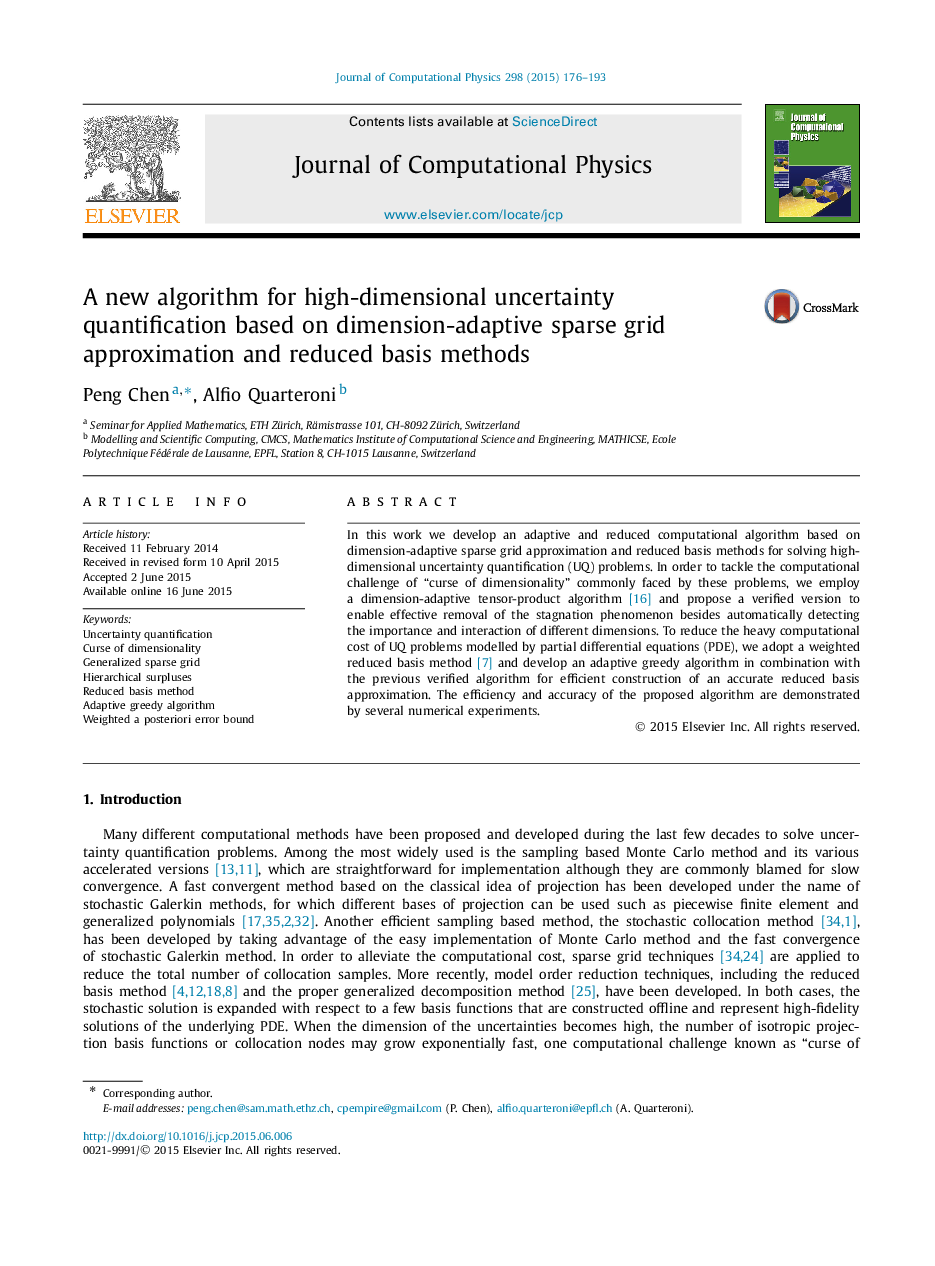| Article ID | Journal | Published Year | Pages | File Type |
|---|---|---|---|---|
| 6931142 | Journal of Computational Physics | 2015 | 18 Pages |
Abstract
In this work we develop an adaptive and reduced computational algorithm based on dimension-adaptive sparse grid approximation and reduced basis methods for solving high-dimensional uncertainty quantification (UQ) problems. In order to tackle the computational challenge of “curse of dimensionality” commonly faced by these problems, we employ a dimension-adaptive tensor-product algorithm [16] and propose a verified version to enable effective removal of the stagnation phenomenon besides automatically detecting the importance and interaction of different dimensions. To reduce the heavy computational cost of UQ problems modelled by partial differential equations (PDE), we adopt a weighted reduced basis method [7] and develop an adaptive greedy algorithm in combination with the previous verified algorithm for efficient construction of an accurate reduced basis approximation. The efficiency and accuracy of the proposed algorithm are demonstrated by several numerical experiments.
Keywords
Related Topics
Physical Sciences and Engineering
Computer Science
Computer Science Applications
Authors
Peng Chen, Alfio Quarteroni,
